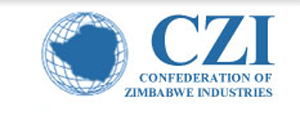
THE Confederation of Zimbabwe Industries (CZI) congress held in Bulawayo has come and gone, but questions abound surrounding the implementation of the resolutions made in reversing the massive de-industrialisation the country has been facing for years.
GAMMA MUDARIKIRI
The high powered three-day conference under the theme Imperatives For Reversing De-Industrialisation last week was attended by top company executives and high-ranking government officials including ministers to map out a policy implementation matrix in the turnaround of industry currently in doldrums.
Industry and Commerce minister Mike Bimha, Youth, Indigenisation and Economic Empowerment minister Francis Nhema and Finance deputy minister Samuel Undenge were some of the high profile delegates who attended the congress.
According to CZI, the hosting of the congress in Bulawayo was strategic as the city is the hardest hit by de-industrialisation after recording close to 100 company closures last year, leaving thousands unemployed.
Experts say Zimbabwe’s second largest city, once the country’s industrial hub, has been relegated to an industrial carcass as companies closed down.
The congress was hosted a few days after the industrial lobby group announced results of its annual manufacturing sector survey which showed that industry’s capacity utilisation had plunged to 39,6% from 44% recorded last year.
CZI attributed the decline in capacity utilisation partly to erratic power supply, influx of cheap imported goods, antiquated machinery and high labour costs, among other things which, however, are challenges that have remained unsolved for years.
- Chamisa under fire over US$120K donation
- Mavhunga puts DeMbare into Chibuku quarterfinals
- Pension funds bet on Cabora Bassa oilfields
- Councils defy govt fire tender directive
Keep Reading
Coming up with an implementation strategy to improve the currently low levels of capacity utilisation and curbing de-industrialisation was the main thrust of the congress.
To stimulate growth in industrial capacity, the congress resolved that the government should urgently implement the long standing plan of declaring some areas in the country Special Economic Zones (SEZ), in a move likely to attract foreign direct investments (FDI) SEZ are designated areas in a country that possess special economic status enjoying tax incentives and exemption from duty on importation of raw materials among other things, to create an investor-friendly environment.
Industry has for long been struggling to attract foreign capital inflows partly attributed to a difficult business environment. Zimbabwe, according to a World Bank Doing Business survey, is currently ranked 172 out of 185 investment destinations.
Critics blame the country’s punitive tax regime, stringent labour laws, lack of clarity on indigenisation and empowerment regulations for spooking FDI.
Speaking at the congress, Nhema, however, said the implementation of the indigenisation law going forward would be flexible with the different sectors of the economy.
“We never said one-size-fits-all with regards to companies complying with indigenisation. We will be flexible,” Nhema said.
To improve the business environment, the congress proposed that the National Economic Council Forum should be restructured to be a 15-member body on economic and industry issues which reports to the Vice-President once a month and publishes monthly updates.
This is expected to ensure research and close monitoring of implementation of policies driving the recapitalisation of industry in the country.
Industry capacity continues to decline also due to high labour costs emanating from restrictive laws blamed for suffocating the recovery of industry.
According to CZI congress resolutions, the country’s restrictive labour laws, coupled with high minimum wages, are unsustainable and are contributing to the industry’s failure to recover and as such, should be urgently reviewed.
The congress agreed to submit a proposal to the government to introduce a wage correction policy citing that the country’s minimum wage is too high and uncompetitive compared to other countries in the region and if not revised, would continue to hamper industrial recovery.
“Labour laws are the greatest drawback to productivity and the competitiveness of industry and, as such, we want a wage system that is productivity-based,” read part of the CZI resolutions. “There is need for an automatic wage reduction in terms of companies that are in distress.
“We need to be able to retrench at acceptable standard retrenchment package of one week per year salary versus the current two to three months per year salary.”
Local industry has also been rendered uncompetitive by an influx of cheap imports largely due to lack of tariffs protecting locally produced products.
Captains of industry also resolved that the government must revisit the South Africa–Zimbabwe trade agreement signed in 1996. The agreement calls for a review of the duty-free regime or preferential tariff quota which applies to items including dairy products, potatoes, birds and eggs, among other things, which captains of industry said was rendering Zimbabwean companies with high cost base structures uncompetitive, as it had allowed the influx of cheap foreign commodities.
Commenting on the issue, Zimplow chief executive officer Zondi Kumwenda said there was also abuse of trading protocols especially the Sadc certificate, which he added was the reason for cheap products flooding the market, while local industry continued to suffer.
“Not all protocols are bad, but there has been serious abuse of the Sadc certificate of origin where goods from China are now originating from South Africa,” Kumwenda said.
“This has to be stopped by putting serious anti-dumping tariffs.” The congress said leaky borders were undermining industrial development, adding that there was need for the government to prioritise modern control techniques and technologies.
In addressing power shortages, the congress called on the government to identify quick-win projects in the power sector, including independent power importers and alternative energy sources, adding that the Zimbabwe Energy Supply Authority should not be the exclusive focus for the provision of national electricity needs.











